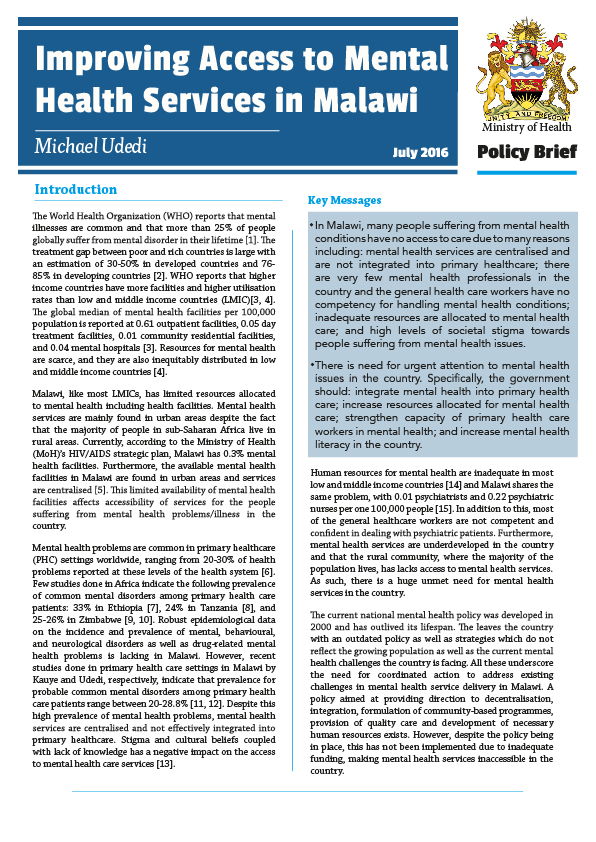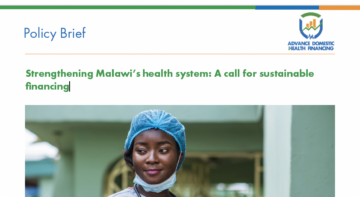
The World Health Organization reports that mental illnesses are common and that more than 25 percent of people suffer from mental disorder in their lifetime. The treatment gap between poor and rich countries is large with an estimation of 30-50 percent in developed countries and 76-85 percent in developing countries. The WHO reports that higher-income countries have more facilities and higher utilisation rates than low and middle-income countries. Resources for mental health are scarce, and they are also inequitably distributed in low and middle-income countries. Malawi, like most LMICs, has limited resources for mental health facilities and services. As such mental health services are more urban-based despite that the majority of people in sub-Saharan Africa living in rural areas. This limited availability of mental health facilities affects accessibility of services for the people experiencing mental health problems/illness in Malawi. This policy brief therefore goes into the policy options that could set the pace for increased resource allocation and access and makes recommendations based on these.
Related Publications





